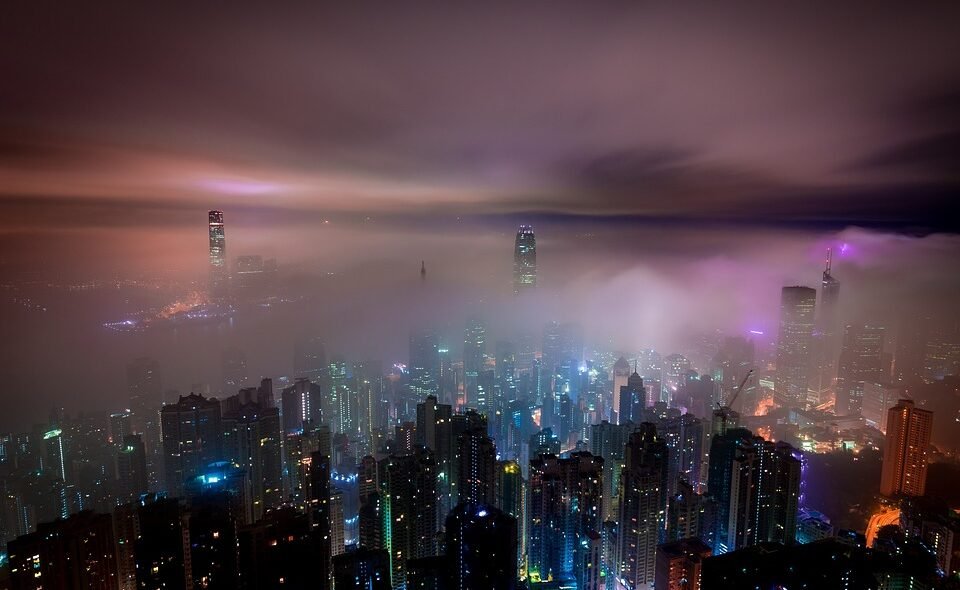| Question | Answer |
|————————————————————|——————————————————————————————————————————————————————————————————————————————————————————————————————————————————————————————————————|
| What are the main reasons behind the Hong Kong Protests? | The Hong Kong Protests began in response to a proposed extradition bill, fears of eroding autonomy and civil liberties under “one country, two systems” framework, demands for universal suffrage, inquiry into police behavior, and release of arrested protesters. |
| How have the Hong Kong Protests impacted the city’s economy? | The protests have led to a decline in tourism, retail sales, and investment, questioning the city’s stability as a financial hub, causing transportation disruptions, school closures, and unease among residents and visitors. |
| What is the international response to the Hong Kong Protests? | Many countries express concern over eroding freedoms and rights, with the US passing legislation in support of protesters and the UK calling for peaceful resolution, while some countries maintain a neutral stance. |
| How have the Hong Kong Protests influenced the political landscape in the city? | The protests have led to increased political activism, pro-democracy candidates winning seats in district council elections, exposing existing societal divisions, and polarizing the political landscape in Hong Kong. |
| What tactics have the Hong Kong Protests used to amplify their message? | The protests have utilized peaceful marches, rallies, strikes, flash mob protests, human chains, artwork, social media, civil disobedience, occupying government buildings, and disrupting public transportation to maintain momentum and draw attention to their demands for democracy and human rights. |
| What role do social media play in the Hong Kong Protests? | Social media has been crucial for organizing, mobilizing, and spreading information, with platforms like Twitter, Facebook, and Telegram used for coordination, news updates, and communication. Encrypted messaging apps have helped evade surveillance and censorship, reaching a wider audience and gaining international support. |
| How have the Hong Kong Protests impacted education in the city? | Students and teachers have actively participated in the protests, disrupting classes, exams, and school schedules, leading to closures and cancellations at educational institutions, sparking a debate about the role of education in shaping students’ political views. |
| How has the Chinese government responded to the Hong Kong Protests? | The Chinese government has condemned protesters as separatists, terrorists, and foreign-backed agitators, accused foreign countries of meddling, deployed riot police, cracked down on protesters, censored information, controlled media, and asserted its authority in Hong Kong. |
| What are the potential long-term implications of the Hong Kong Protests? | The protests could have far-reaching implications for autonomy, democracy, human rights, Hong Kong’s global status, its relationship with mainland China, and international standing, depending on how the situation evolves and stakeholder responses. |
| How can individuals support the Hong Kong Protests from abroad? | Individuals can support the protests by raising awareness, contacting elected officials, donating to pro-democracy organizations, participating in solidarity events, amplifying the message on social media, attending rallies, educating themselves and others about the issues, and showing solidarity with protesters. |
### FAQ
– **Q:** How did the Hong Kong Protests start?
– **A:** The protests started in response to a proposed extradition bill in 2019.
– **Q:** What are the main demands of the protesters?
– **A:** The protesters are demanding universal suffrage, an independent inquiry into police behavior, and the release of arrested protesters.
– **Q:** How have the protests impacted daily life in Hong Kong?
– **A:** The protests have disrupted transportation, caused school closures, and created a general sense of unease among residents and visitors.
– **Q:** What has been the role of social media in the protests?
– **A:** Social media has been crucial for organizing, mobilizing, and spreading information among protesters and supporters.
– **Q:** How has the Chinese government responded to the protests?
– **A:** The Chinese government has condemned the protesters, deployed riot police, and attempted to shape the narrative around the protests.
– **Q:** What are the potential long-term implications of the protests?
– **A:** The protests could impact Hong Kong’s autonomy, democracy, global status, and relationship with mainland China.
– **Q:** How can individuals support the Hong Kong Protests from abroad?
– **A:** Individuals can support the protests by raising awareness, contacting elected officials, donating to pro-democracy organizations, and showing solidarity with protesters.
Hong Kong Protests: The Fight for Democracy in the Fragrant Harbour
The Fight for Democracy in the Fragrant Harbour: Answering the Most Asked Questions
1. What are the main reasons behind the Hong Kong Protests?
The Hong Kong Protests, also known as the Anti-Extradition Law Amendment Bill Movement, began in 2019 as a response to a proposed extradition bill that would allow suspects to be transferred to mainland China for trial. The protesters fear that this bill would erode the autonomy and civil liberties that Hong Kong enjoys under the “one country, two systems” framework.
The demonstrators are also demanding universal suffrage, an independent inquiry into police behavior during the protests, and the release of arrested protesters.
The movement has since evolved to encompass broader demands for democracy, freedom, and human rights in Hong Kong.
2. How have the Hong Kong Protests impacted the city’s economy?
The ongoing protests have taken a toll on Hong Kong’s economy, leading to a decline in tourism, retail sales, and investment. The city’s reputation as a stable financial hub has also been called into question, with some businesses considering relocating their operations.
Additionally, the protests have disrupted daily life in Hong Kong, causing transportation disruptions, school closures, and a general sense of unease among residents and visitors alike.
While the long-term economic impact remains uncertain, there is no doubt that the protests have had a significant effect on Hong Kong’s economy.
3. What is the international response to the Hong Kong Protests?
The Hong Kong Protests have garnered attention and support from around the world, with many countries expressing concern over the erosion of freedoms and rights in Hong Kong. The United States, in particular, has passed legislation in support of the protesters, while the United Kingdom has called for a peaceful resolution to the unrest.
However, not all countries have taken a strong stance on the issue, with some opting to maintain a neutral position. The international response to the protests remains divided, reflecting the complex geopolitical dynamics at play in the region.
4. How have the Hong Kong Protests influenced the political landscape in the city?
The Hong Kong Protests have sparked a wave of political activism and engagement in the city, leading to a renewed interest in local elections and democratic processes. Pro-democracy candidates have seen increased support, with many winning seats in district council elections.
At the same time, the protests have also exposed existing divisions within Hong Kong society, pitting pro-democracy activists against supporters of the government and Beijing. The political landscape in Hong Kong has become increasingly polarized as a result of the ongoing unrest.
5. What tactics have the Hong Kong Protests used to amplify their message?
The Hong Kong Protests have utilized a variety of tactics to amplify their message and garner international attention. These tactics include peaceful marches, rallies, strikes, and flash mob protests. Protesters have also employed innovative strategies such as forming human chains, creating artwork, and using social media to organize and spread their message.
Additionally, protesters have engaged in acts of civil disobedience, such as occupying government buildings and disrupting public transportation. These tactics have helped the movement to maintain momentum and draw attention to their demands for democracy and human rights.
6. What role do social media play in the Hong Kong Protests?
Social media has played a crucial role in the Hong Kong Protests, serving as a tool for organizing, mobilizing, and spreading information. Platforms like Twitter, Facebook, and Telegram have been used to coordinate protests, share news updates, and communicate with supporters and the international community.
Protesters have also utilized encrypted messaging apps to evade surveillance and censorship by the authorities. Social media has helped the movement to reach a wider audience, both within Hong Kong and globally, and has facilitated solidarity and support for the protesters’ cause.
7. How have the Hong Kong Protests impacted education in the city?
The Hong Kong Protests have had a significant impact on education in the city, with students and teachers actively participating in the movement. Many students have taken to the streets to protest, while some teachers have faced repercussions for expressing support for the protests.
The unrest has disrupted classes, exams, and school schedules, leading to closures and cancellations at various educational institutions. The protests have also sparked a debate about the role of education in shaping students’ views on politics, democracy, and citizenship.
8. How has the Chinese government responded to the Hong Kong Protests?
The Chinese government has responded to the Hong Kong Protests with a mix of rhetoric and action, condemning the demonstrators as separatists, terrorists, and foreign-backed agitators. Beijing has also accused foreign countries of meddling in Hong Kong’s affairs and supporting the protests.
In addition to deploying riot police and cracking down on protesters, the Chinese government has attempted to shape the narrative around the protests by censoring information, controlling the media, and promoting its own version of events. Beijing has made it clear that it will not tolerate challenges to its authority in Hong Kong.
9. What are the potential long-term implications of the Hong Kong Protests?
The Hong Kong Protests have the potential to have far-reaching and long-lasting implications for the city, its residents, and the broader region. The protests have already brought attention to issues of autonomy, democracy, and human rights in Hong Kong, and have sparked a debate about the future of the “one country, two systems” framework.
The outcome of the protests could also impact Hong Kong’s status as a global financial hub, its relationship with mainland China, and its standing in the international community. The long-term implications of the protests will depend on how the situation evolves and how the various stakeholders choose to respond.
10. How can individuals support the Hong Kong Protests from abroad?
There are several ways that individuals can support the Hong Kong Protests from abroad, even if they are not able to physically participate in the demonstrations. These include raising awareness about the situation in Hong Kong, contacting elected officials to urge them to take action, donating to organizations that support the pro-democracy movement, and participating in solidarity events and protests.
Individuals can also show support for the protesters by amplifying their message on social media, attending rallies and events, and educating themselves and others about the issues at stake in Hong Kong. Solidarity and support from the international community can make a difference in the fight for democracy in the Fragrant Harbour.



